Unique Selling Proposition (USP)+ Examples and Mistakes to Avoid
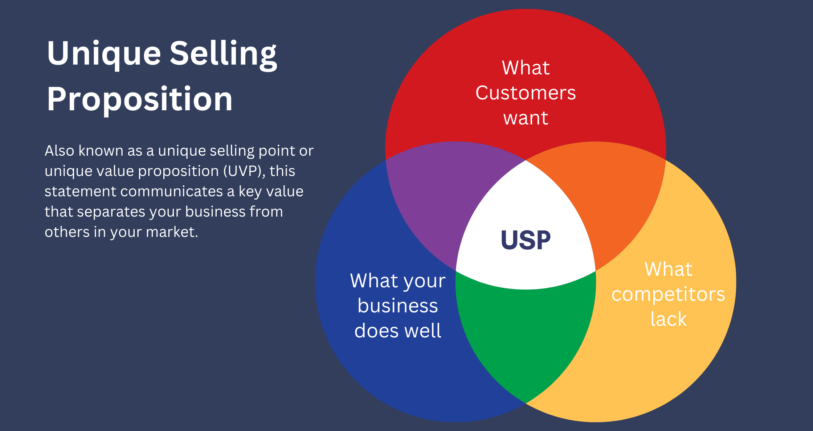
Big or small, your business needs a unique selling proposition (USP).
And here’s why…
On average, over 4.7 million businesses are launched in the United States every year, which is approximately 100,000 new businesses weekly.
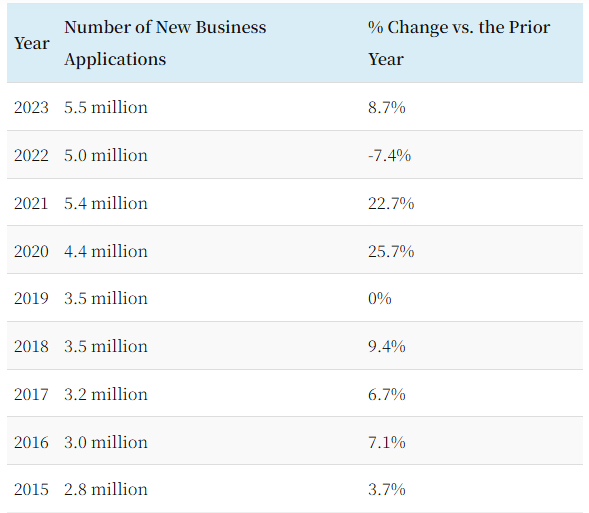
As you read this today, about 12,000 new businesses are in the making.
So, regardless of your niche, product, or service, a few hundred new competitors join the existing ones, every single day.
To survive this ever-growing competition, you need a compelling differentiator.
And only a strong unique selling proposition (USP) gives you that.
In this article, I’ll explain, with examples, what a unique selling proposition (USP) is, why your business needs one, and how and why it’s different from a value proposition.
The Basics of Unique Selling Proposition (USP)
Agreed. The figures above are partly theoretical.
A more practical approach is to examine how a few giant brands dominated their entire market a few years ago.
Around a decade ago, Netflix controlled nearly 90% of the video streaming market.
Fast forward to 2024, Netflix holds only 21% of the market, thanks to competition from Amazon Prime, HBO Max, and others.
Amazon held about 45% of all U.S. e-commerce sales in 2018.
While still dominant, its share has slightly decreased to around 38% as competitors like Walmart and Shopify-powered stores gain ground.
That’s to show you how fast the internet is leveling the playing field.
Today, anyone, anywhere can start a business and market it online, which is both good and bad news.
Good because you can reach customers worldwide. Bad because everyone else can too.
Now, look around your immediate market and answer these questions:
- How many businesses are just like yours?
- Selling the same product or providing similar services?
- Shouting to reach the same customers?
- And worse still, doing so on the same channel?
It’s a crowded market. And that’s the eternal truth, whether you’re running a small Etsy shop or growing a tech startup.
To compete in this crowded market, you’ve got 2 options:
- Try to yell louder than everyone else (expensive and exhausting) or
- Define exactly who you’re speaking to and connect with them (smart and effective)
Think of it this way…
Instead of trying to sell ice cream to everyone at the beach, you could be the only one selling dairy-free options to people who can’t have regular ice cream.
That’s what a unique selling proposition (USP) helps you do. It helps you pinpoint and attract your perfect customers.
What’s Unique Selling Proposition (USP)?
A unique selling proposition is a short, bold marketing statement that motivates customers to buy from you instead of your competitors.
Also known as a unique selling point or unique value proposition (UVP), this statement communicates a key value that separates your business from others in your market.
It explains how your business meets consumers’ needs in a way that competitors do not.
This could be:
- A special way you solve problems
- A unique feature only you offer
- A guarantee that others won’t make
- A social cause you care about, etc.
In his concise guide to creating a killer USP, Tony Eades, Chief Strategy Officer and CEO at Salted Stones wrote:
“Your USP is a vital element in crafting your future growth. Your organization may have an exceptionally high-value product or service to offer; however, unless you support this attribute with a clear, crisp, and impactful USP, there will always be a palpable void between your projections and your actual achievements. In other words, to thrive at an optimal rate, creating a killer USP is a must.”
How a Unique Selling Proposition Works
Having a clear USP is like whispering directly into the ears of the people who need you most.
It’s your USP as your “only we…” statement.
As in: “Only we [do this special thing] for [these specific customers].”
Until you can do this, winning customers’ loyalty organically will be a challenge. It’s just as Seth Godin thoughtfully put it:
“Instead of working so hard to prove the skeptics wrong, it makes a lot more sense to delight the true believers. They deserve it, after all, and they’re the ones that are going to spread the word for you.”
To better understand this, look at these 2 hypothetical accounting software companies:
- Company A USP: The Best Accounting Software for Online Businesses
- Company B USP: The Only Accounting Software Built Specifically for Freelancers and Creators
Company A USP: The Best Accounting Software for Online Businesses
For an untrained eye, this USP might seem compelling.
But it’s not. Here are 4 reasons it won’t move the needle:
- No Defined Audience: What business? Micro, small, medium, or Large. There’s nothing here to make customers say, “This is exactly what I need.”
- Stiff Competition: This USP put the business up against accounting giants like QuickBooks and Xero.
- Generic Appeal: Customers won’t remember a generic claim because it doesn’t connect emotionally or practically with them.
- Marketing Headaches: It makes marketing scattershot and expensive. You’ll spend more time and money trying to convince everyone that your product is worth it.
Company B USP: The Only Accounting Software Built Specifically for Freelancers and Creators
This is an example of a great USP and here’s why it clicks:
- Defined Audience: It speaks directly to freelancers and creators.
- Specific Solution: Freelancers and creators often have unique income streams. A tool “built for them” feels tailor-made.
- Low Competition: It narrows your focus and reduces direct competition with big players like QuickBooks.
- Marketing Clarity: You know exactly where to direct your marketing effort, which saves you time and resources.
The 4 Key Features of Powerful USPs with Examples
The ultimate goal of a USP is to convince consumers that there is no satisfying substitute for the value you offer.
Your USP must possess 4 essential features to do just that:
- Communicate solutions not domination
- Connect emotionally or practically
- “Stand for” not just “stand out”
- Aren’t about price tags
Let’s break down each of these features using real business examples.
1. They communicate solutions not domination
Your USP shouldn’t just scream “We’re #1”, because…
Nobody really cares.
Consumers aren’t interested in your being the industry leader.
All they care about is whether you can fix their headaches.
They are looking for the best solution to their problems, not the best product on the market.
Legendary copywriter, Claude Hopkin cut through to the heart of it:
Best in the world,” “lowest price in existence,” etc. are at best claiming the expected. But superlatives of that sort are usually damaging. They suggest looseness of expression, a tendency to exaggerate, and a careless truth. They lead readers to discount all the statements that you make. Claude Hopkins.
So, a great USP doesn’t show off. It offers specific solutions to customers’ problems.
Take Slack’s approach:
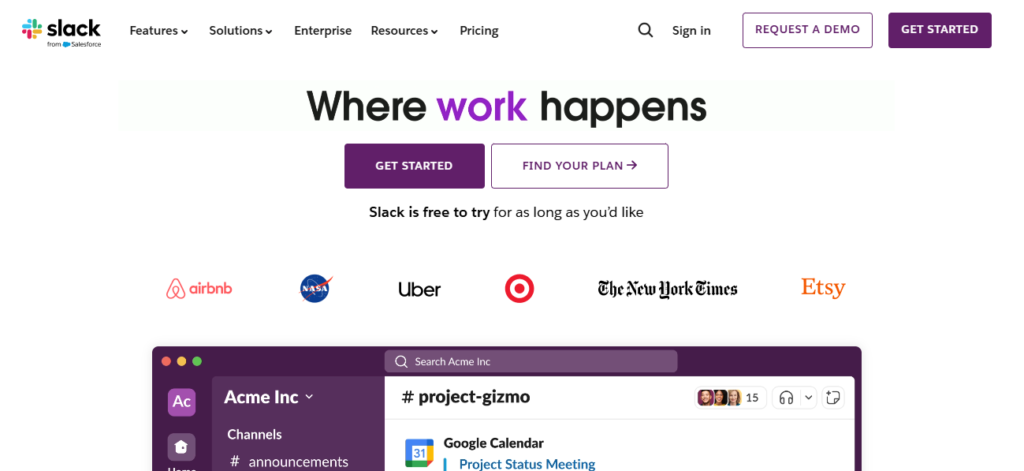
Slack is the world’s largest workplace platform, used by over 200,000 organizations worldwide.
Nearly 80% of Fortune 100 companies rely on Slack for their internal communications.
The company has all the reasons to brag.
However, it leads with the USP “Where work happens” to directly communicate its purpose as the platform of choice for seamless team collaboration.
Make sure you do the same for your business whenever you are ready to create a unique selling point.
You should communicate your value first, not your status.
2. They connect emotionally or practically
Consumers choose brands they trust or feel aligned with their values.
That’s why USPs with powerful heart and head connections work wonders.
Look at TOMS‘ shoes old USP.
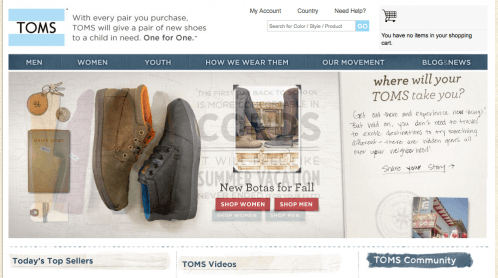
Toms’s one-for-one” proposition isn’t just about selling shoes.
It’s about making customers feel good for helping others.
Or consider FedEx’s classic “When it absolutely, positively has to be there overnight”.
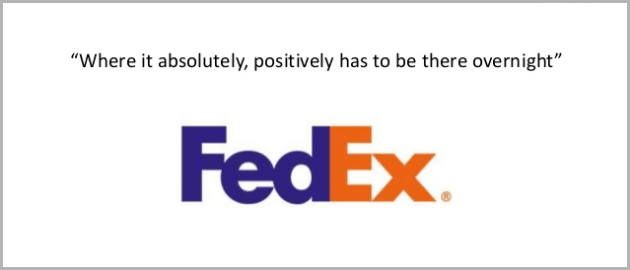
It’s practical, specific, and directed to a core customer need. You want to do the same for your USP.
2. They “Stand For” not Just “Stand Out”
Standing out grabs attention, but standing for something builds business.
In the pursuit of differentiation, many businesses mistake a USP as a synonym for STANDING OUT.
They forget that the most important form of differentiation is to stand for a unique value that fills a gap in the market.
You don’t have to be better than everyone else.
You only need to be the go-to choice for a specific group of people who aren’t getting what they need from anyone else.
That’s what makes you a perfect fit for your ideal customers.
Here’s Patagonia USP:

“We’re in business to save our home planet.”
Patagonia aligns its brand with a cause to attract like-minded consumers. It’s not even about the quality of their products.
The commitment to environmental sustainability makes the company a perfect choice for eco-conscious consumers.
Sales executive and entrepreneur consultant, Jeff Hoffman sums it up pretty well:
“An effective USP communicates your brand’s values and differentiates what your company offers through what you stand for and how this benefits your customers. It’s used in the early stages of the sales process, and the guiding question for creating it is asking yourself, “What does my business offer that’s different from the competition?”
4. They Aren’t about Price Tags
Competing solely on price erodes value perception.
A solid USP must give customers reasons beyond price to consider your business.
Here’s the thing about price wars: there’s always someone willing to go cheaper.
When consumers face the battle of choice (which they always do), they line up all the options before them side by side.
This junction is where every cheap business falls out of favor. As stated by one of the greatest copywriters in history, Robert Collier:
“We have become so accustomed to hearing everyone claim that his product is the best in the world, or the cheapest, that we take all such statements with a grain of salt.”
Look at Apple’s USP.
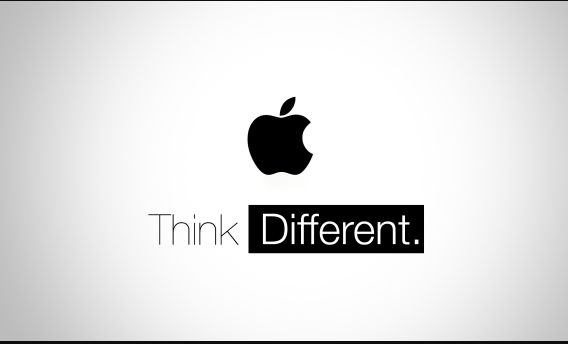
Think Different
Apple products are always a bit pricier than competitors.
Yet, they’ve never had a reason to discuss price in their marketing.
Why?
The company’s USP revolves around innovation and luxury.
Their customers aren’t buying on price. They’re buying into an ecosystem and identity.
Ashley Deland, an award-winning business consultant & owner of Deland Mark, and a Forbes Business Council Member offers this insightful perspective:
“A USP isn’t a marketing offer. Steep discounts, always-free shipping, exceptional customer service, or a risk-free return policy are not USPs. These can help with attracting and retaining customers, but they’re not unique. They’re also easy for competitors to copy and difficult for you to defend”
With the basics out of the way, let’s talk about one of the biggest marketing confusion of this century: USP vs VP.
Unique Selling Proposition vs Value Proposition
Many marketers use both terms interchangeably. To them, they are different wordings for a single term.
For a handful of others, a unique selling proposition and value proposition are 2 different terms.
Rather than standing on either side of the divide, I decided to dig deep into both terms.
I spent over 100 hours figuring out where both terms converge and diverge.
Here’s my conclusion…
There are a few distinctions between a unique selling proposition and a value proposition.
While they both convey marketing messages, they serve different purposes.
Below are the 6 USP vs VP distinctions with explanations and examples.
- Why vs What
- Brand Identity vs Sales
- Singularity
- Emotion vs Logic
- Positioning
- Placement
Now, let’s take them one at a time.
1. The Why vs What Distinction
A unique selling proposition is the “Why” of your business.
It expresses why customers should choose you and not your competitors.
A value proposition, on the other hand, says “what’s in it for your customers”.
That is, the value they get for the money they pay at a particular time.
Let me take you back to Apple’s USP above.
Think Different
The USP communicates a philosophy of innovation and creativity that goes beyond product features to inspire brand loyalty.
This same Apple used the slogan “Beauty Outside. Beast Inside” to market the Mac Pro at launch.

The statement above communicates a direct benefit to consumers looking for a PC that offers beastly performance without compromising aesthetics.
See the difference already?
Apple’s USP: Think Different
Value Proposition for Mac Pro: “Beauty Outside. Beast Inside”
2. Brand Identity vs Sales Distinction
A USP is a brand-wide marketing message that drives brand recognition and identity.
It’s what helps you build a long-term brand narrative.
Value proposition drives sales of particular products/services by targeting immediate customer needs.
It highlights a product or service’s tangible benefits to potential buyers and is often based on consumers’ logical decisions at the point of purchase.
In summary, a USP focuses on your brand positioning, while a value proposition focuses on direct sales.
Let’s use Slack as an example here.
“Where work happens.”
Slack transforms how teams work together by providing a single, organized platform for communication, collaboration, and integration with tools you already use.
It enables faster decision-making and seamless teamwork, whether you’re in the office or working remotely.
But to make that happen, Slack has a long list of features each with different value propositions.
Here’s Slacks value proposition for its channel feature:

And this for its clipping feature:
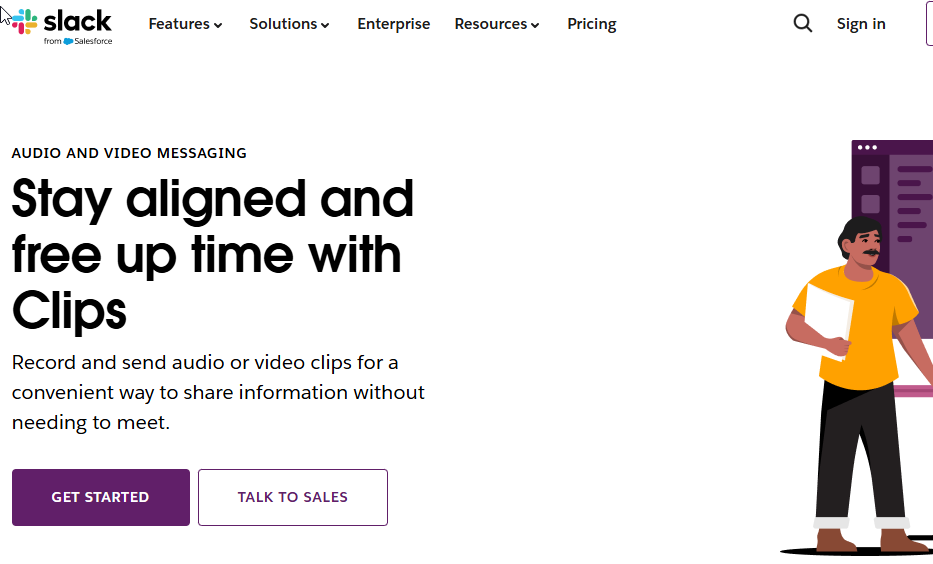
Now, that brings us to the next distinction, singularity.
3. Singularity Distinction
Again, let’s use Slack as our example.
Slack has a single USP, but different value propositions across its features, target industry, and market.
These propositions explain Slack’s value for specific users such as developers, sales, HR, Marketers and so on.
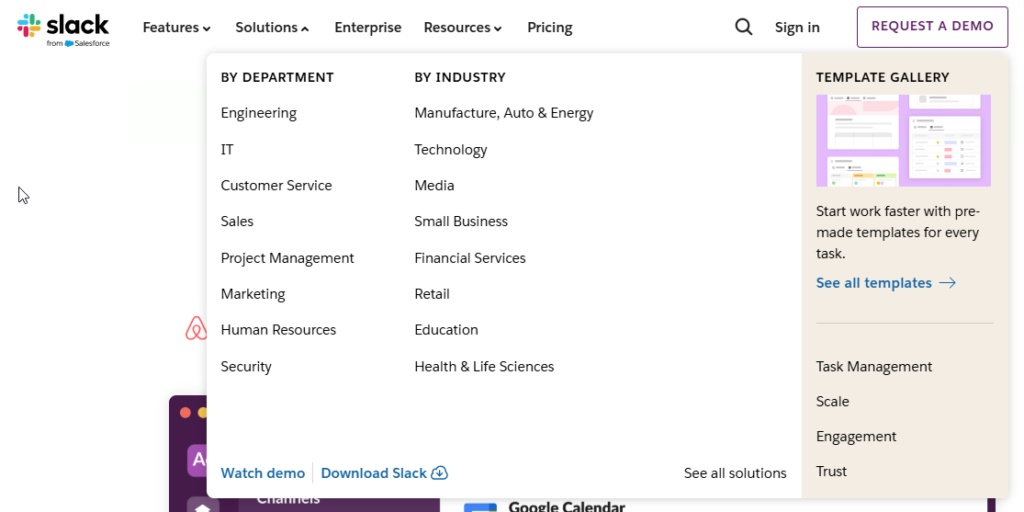
Your business can have different value propositions for various market segments and customer persona.
You can also have multiple sales propositions for the different services, marketing campaigns, product lines, and features.
A USP offers a benefit that’s relevant to all customers, products, and features. It’s always one.
4. Emotional vs Logical Distinction
Although not as a rule, some of the most successful USPs we’ve seen have emotive appeals.
These types of USPs build emotional connections with consumers, which make them stay in business with you beyond the monetary exchange of value.
Take TOMS Shoes “One for One” USP as an example.
This USP leverages the psychology of social impact to connect emotionally with shoe shoppers.
Since every purchase helps someone in need, customers feel they’re part of a larger mission.
Value propositions, on the other hand, always appeal to the buyer’s sense of reasoning.
They use logic and facts to convince buyers to choose a product or service.
5. Positioning Distinction
Unlike value propositions, a USP doesn’t, by rule, revolve around notable product details, quality or features.
It can focus on a broader aspect of a brand’s life, such as convenience, dependability, philanthropy, services, ethics, speed, source, process, etc.
Apple’s innovation and Patagonia’s sustainability are great examples of USPs ingrained in company culture rather than directly in their products or services.
6. Placement Distinction
USPs are prominently placed at the forefront in every business-customer touchpoint.
You’ll see it on primary branding materials, above the fold on a company’s homepage, social media covers, delivery packaging, and everywhere the brand exists.
Since value propositions are always based on individual products/services, they are often placed on specific product and service landing pages.
And unlike USP, they use more words and often require more explanation.
USP vs Value: Where do they Converge?
The 6 distinctions above show that a USP and a VP offer some level of differentiation.
The fundamental difference lies in what they are differentiating.
Thus one could say:
A USP is a collective differentiator while a VP is a selective differentiator.
USP as a collective differentiator
A USP is a differentiator that appeals to your entire customer base.
It’s a value that benefits all, regardless of their specific needs or preferences.
Example: “The only coffee shop that roasts its beans in-house every morning.”
This is a USP because it’s a unique, verifiable feature that sets the coffee shop apart from all competitors.
It’s a general differentiator, as it’s not targeted at a particular type of coffee drinker.
VP as a selective differentiator
Value proposition offerings are tailored to individual circumstances and needs.
It selectively targets and appeals to a particular group.
Example: “Our mobile app helps busy professionals save time and manage their finances effortlessly.”
This is a VP because it focuses on the value provided to a specific audience (busy professionals).
Now think about it more deeply. You’ll agree with me that…
A USP is always a value proposition but a value proposition is not necessarily a USP.
To better understand this, let’s hear from the man who threw the term into the marketing limelight.
Rosser Reeves on Unique Selling Proposition
In his 1961 best-seller, Reality in Advertising, Rosser Reeves enunciated the three characteristics of a unique selling proposition.
Otherwise, it’s another creative string of words that offers no business value.
He wrote:
- Each advertisement must make a proposition to the consumer—not just words, product puffery, or show-window advertising. Each advertisement must say to each reader: “Buy this product for this specific benefit.”
- The proposition must be one the competition cannot or does not offer. It must be unique—either in the brand or in a claim the rest of that particular advertising area does not make.
- The proposition must be strong enough to move the masses. It must be powerful enough to attract new customers and maintain current ones.
Reeves explained that a brand/business could highlight several products, features, and services, each with unique benefits, but must look for one big promise to emphasize.
This idea or promise must be big enough to move the masses. And it must be one that continuous emphasis will not render weary.
The promise should be at the core of the brand message, the heart of all marketing efforts, and, most importantly, what the brand can deliver.
On this premise sits the memorable USP Reeves created for M&M candy.
It melts in your mouth, not in your hands.
M&M’s Unique Selling Proposition
Science says chocolate’s melting point is lower than the temperature of the human body, which means chocolate will forever melt in our hands.
M&M’s thought, “What if?”, went all out, and returned with bars of impossible chocolate.
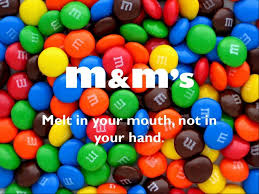
How? By Sugarcoating…
Sugar-coating chocolate creates a layer that prevents direct contact with the human body.
And that was the differentiator- the only chocolate candy that doesn’t melt in your hand.
Hence the USP: “It melts in your mouth, not in your hands.”
In context, solving an existential problem in your industry is one of the most effective ways to develop a proposition that will drive business growth.
Common Unique Selling Proposition Mistakes to Avoid
While businesses make various mistakes with their USPs, some are more common and easier to fall into than others.
Here are 3 frequent USP pitfalls we see every day.
1. Overpromising USP
I’ve seen them. You’ve seen them–those marketing claims that sound too good to be true, because they truly are.
Promises like “guaranteed to solve all your problems” or “100% success rate” might sound great on paper, but they’re a fast track to losing customer trust.
While an over-promising USP might yield short-term sales gains, it’s detrimental in the long run.
If you can’t deliver on these grandiose claims, you’ll lose customers and your brand credibility.
Of course, your USP should be ambitious, but you should only propose what you can offer.
2. Complex USP
Before marketing a paragraph-length USP, ask yourself…
Who’ll remember a lengthy USP? Not me.
And, definitely, not your to-be customers.
Consumers are already overloaded with information. They don’t have time to decode any ambiguous marketing message before they can buy from you.
Your USP should be comprehensible at a glance.
If it takes a second or third read to grab, it’s working against your business.
You want to keep it simple, concise, and memorable. Avoid complex words or an overly long sentence.
Simplicity always sells better, anytime, any day.
3. Generic USP
The U in your USP stands for unique.
It should be nearly impossible for your competitors to replicate.
The danger of a generic USP is not one.
Besides confusing your audience, it makes you another lost “same” in a sea of sameness.
The type that makes consumers scroll past you to seek out competitors with specific and relevant USPs.
If any of your competitors can use that same USP, you’ve still got some homework to do.
Go beyond surface-level claims. Dig deep into your customers, market, and products to find a unique value that makes your business truly special for the type of customers you want to serve.
Unique Selling Proposition (USP) FAQs
Below are the most common questions people ask about a unique selling proposition.
How do I create a strong USP?
Creating a powerful USP requires a deep understanding of your market, customers, and unique business strengths. Start by researching your target audience’s pain points. Next, analyze your competitors’ strengths and weaknesses, Then, pick a unique angle to address the specific needs of your target audience.
Can a business have more than one USP?
No! A company typically has one overarching USP. Individual product lines or services will have value propositions tailored to their target audiences.
How can I test the effectiveness of my USP?
To test the effectiveness of your USP, you should monitor sales and leads, conduct surveys and polls, analyze customer reviews, and A/B test your marketing materials. Tracking these metrics gives you an insight into the impact of your USP on customer behavior.
Wrapping Up
Your business cannot afford not to have a unique selling proposition, especially if you are small or new.
Now that you understand what a unique selling proposition is and why your business needs one, are you ready to create one for your business?
Check out our practical guide on how to create a unique selling proposition. You’ll also find these value proposition formulas helpful.
Need help with creating a ferociously unique USP for your business? Let’s chat.


